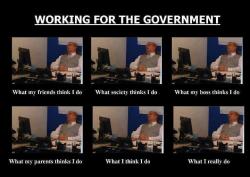Search the Community
Showing results for tags 'government'.
-
ok people, the day is here... let's prepare for a closed shop US govt, and some crashed stock markets time to pick up bargains on the cheap
- 173 replies
-
- government
- close
- (and 4 more)
-
Even though most of the infrastructure plans outlined in the latest Land Transport Masterplan were announced in the run-up to the Punggol by-election in January, the document is admirable for the way it maps out methodically what Singapore needs to do to keep its population moving up to 2030. But a masterplan requires more than just hardware. It needs to spell out more qualitative targets, rather than focus on quantitative ones such as the length of rail network and number of buses. It needs to get to the crux of what leaves commuters satisfied: service quality. While the plan spells out issues such as service frequency and reliability, as well as walking distance to and from a train station or bus stop, the proof of the pudding goes beyond that. There is a need to look at how crowded it can get, the quality of air-conditioning, train speed (which has been patchy of late), station dwell time, dependability of services such as lifts and escalators, and even noise level on trains. The plan needs to deliver that lofty promise touted famously by a leading airline - "making sure you arrive in the best possible shape" - if public transport is to have any chance at all competing against the car. Here, the goal is to make public transport a choice mode, rather than a mode of no choice. To do that, there needs to be a slight shift away from an engineering-centric way of meeting an objective and measuring how successful we have been doing so. But that does not mean diminishing the importance of engineering. In that respect, the quality of infrastructure needs to be nailed down, since this will eventually determine its reliability and longevity. In light of recent rail breakdowns, it appears that there are still struggles with water leakage in tunnels - an issue faced by builders since the Central Expressway opened more than 20 years ago, despite improvements in construction material and technology. These leaks appear to be the root cause of many MRT incidents, including at least two tunnel fires and tracks that corroded barely three years after a new line was opened. If leaks are indeed unavoidable - as claimed by the Land Transport Authority - then it must be made sure that water is channelled safely away from all operating parts such as rails and cables. And if such parts cannot be placed out of the path of water, then at least ensure that they are water-resistant. There is little point stating that Singapore's infrastructure specifications meet international standards - each geographical region poses its own set of challenges. So engineers here should specify standards that are suitable for local conditions - just as car makers 'tropicalise' models meant for hot and humid markets. It is true that it is the responsibility of operators to ensure operating assets are well-maintained and flaws are fixed quickly. But that responsibility becomes much more onerous if an infrastructure is prone to one form of failure or another in the first place. Singapore pays top dollar for its infrastructure. So it is reasonable to expect a high level of robustness. Another area that needs overhauling is a transport framework that suffers from the tension arising from profit-oriented operators providing a public service. It is now clear that publicly listed operators face opposing values of satisfying shareholders and commuters. While it is in their commercial interest to keep operating assets in good running order, they may be tempted to delay repairs and upgrades for as long as possible. Or do the barest minimum. 'Softer' measures of service quality, such as crowdedness or efficiency of air-conditioning, matter even less. So Singapore needs to move swiftly to a regime where the Government takes ownership of all operating and fixed assets, and, preferably, assumes revenue risk. The operator would then be tasked with focusing solely on meeting a clearly laid out set of service standards - without worrying about the bottom line, because their profit margins would already have been fixed. An effective carrot-and-stick regulatory system will then ensure that the welfare of commuters is prioritised. Any masterplan also needs to be stuck to. One way to ensure this is to have longer stints for ministers and permanent secretaries. Former Transport Ministers Mah Bow Tan and Yeo Cheow Tong outlined ambitious rail projects during their terms. Mr Yeo told Parliament in 2000 that Singapore would have 540km of rail lines by 2030. But only now are some of these projects being built; and we will have only 360km of rail by 2030. A plan in 1997 to upgrade the signalling system of the North-South and East-West MRT lines - which would have allowed trains to run at closer intervals - will be completed only in 2018. If those original plans were adhered to, our transport infrastructure would have kept pace with the population boom. As it is, the rail expansion programme listed in the Land Transport Masterplan 2013 may be merely playing catch-up, as Singapore continues to grow. It does not help that some of the new lines are three- or four-car systems - unlike the six-car models in the country's older lines, and eight-car or scalable systems found in some cities. Finally, this may be time to re-examine two even more fundamental assumptions about transport - that public transport is good and private transport is bad; and there is a need to keep increasing supply to meet demand. To start, we can stop demonising cars, which play a crucial role in any land transport landscape. With fast-emerging technologies such as autonomous vehicles, they might even become more efficient than public transport. With an average occupancy of 20 percent today, a bus may not be more efficient than a car during off-peak hours. Especially when a bus consumes far more fuel and far more road space. The second assumption of building more and more to meet demand is fallacious too. Consider how Singapore's population has grown 110 percent since 1981 but the number of trips (excluding cycling and walking) has spiked by more than 360 percent to 12.5 million a day. Since people commute primarily because they have to, and not so much because they want to, this exponential growth in trips is a tad worrying. If the trend continues at the same pace, it may not be sustainable - economically or environmentally - to keep building more infrastructure to cater to demand. We need to find a better way. And that may require urban and transport planners sitting down together to improve accessibility, and not just mobility. The way we live, work and play on this little red dot also needs tweaking if Singapore wants to avoid the maladies of a mega- city. And that will involve more mixed-use developments, flexi- hours, tele-commuting, walking and cycling. Picture credit: ST Photo - Ashleigh Sim
- 1 comment
-
- singapore
- government
- (and 7 more)
-
The government shutdown in the United States is into its second week with no end in sight. Whether a civil servant forced into no-pay leave, a war veteran missing his monthly disability cheque, or a patient with cancer on a state-funded clinical trial, the refusal of Congress to open the federal purse has had far-reaching effect in the lives of ordinary Americans. From across the Pacific, what is unfolding in the US may seem like the sort of hellish political dysfunction that would never touch our sunny shores. But a Singapore Government shutdown is - though extremely unlikely - not impossible. In fact, imagining it illuminates the quirks of this little red dot’s system of government: most schoolchildren would have to stay home, for example, but not researchers. The Housing Board hotline would be closed, but not the Town Council’s. Construction of the new MRT lines would screech to a halt, but the trains would keep running as they are operated by publicly-listed companies. The scenario in which the Singapore Government could shut down would begin with Parliament refusing to pass the Supply Bill, which is the Government’s planned expenditure for the year. This is exceedingly rare in Westminster systems as the majority party in Parliament forms the Cabinet, unlike in the US. It is even more unlikely in a unicameral system like Singapore’s - as there is no Upper House or Second Chamber to block legislation. But a backbench revolt or a split in the ruling party could occur, or, one partner in a coalition government could refuse to support the Spending Bill. These might give opponents enough votes to defeat the Government’s Budget. The People’s Action Party’s is currently so dominant that the prospect of a coalition government is almost fantasy, and the last time there was a split in the ruling party was back in 1961. But the Constitution has laid out rules for every eventuality. It states that if Parliament does not pass a Supply Bill, the Finance Minister may take money from the Government’s Consolidated Fund, where all its revenue accrues. It is currently at $206 billion. But he can take only up to a quarter of the previous year’s Budget. Essentially, the government can keep going for only three more months. This is designed to tide the country through a General Election. The failure to pass a Supply Bill is by convention equated to a vote of no-confidence in the Government. That is, the Prime Minister should get the hint and advise the President to dissolve Parliament for elections to be held. If he remains intransigent and refuses to do so, the President can actually unilaterally declare the seat of the Prime Minister vacant, and appoint someone else in his place who would call for elections. This would be a way out of the impasse. It would only be in an uncanny string of events - Parliament defeats the Budget, the Prime Minister refuses to resign, the President does not act, and this stand-off goes on for more than three months - that a Singapore government shutdown occurs. Implausible and incredible, perhaps, but not impossible. So what of ordinary Singaporeans faced with a shutdown? The good news is that the national life may actually be disrupted less severely than expected. Yes, tens of thousands of civil servants would be furloughed, which is to be essentially forced into no-pay leave. But due to two entrenched quirks of the Singapore system - decentralisation and endowment funds - much will keep running. Take the Town Councils, which were established in 1989 for HDB towns to be managed locally. They are largely funded from service and conservancy charges paid by residents, and maintain their own finances and operations. The Government gives the Town Councils a yearly grant of 15 per cent of their total incomes each year. Chua Chu Kang town council chairman Zaqy Mohamad says that this is not a big enough sum to affect daily operations in the event of a state shutdown that would hold back the money. So, the trash will still be collected, the void decks still washed and the blown lightbulbs still replaced. What may be put on hold would be longer-term projects like lift upgrading and re-roofing. Even then, each Town Council can vote to tap into their reserves, known as sinking funds. Given that these are in the tens of millions, crises should be averted. Such decentralisation is also entrenched in institutions that the Government supports like public hospitals. It gives them a lump sum every year - an estimated $2.8 billion this financial year - to subsidise the treatment of lower-income patients. But otherwise, the hospitals are run like private institutions, collecting fees from unsubsidised patients and paying doctors and nurses themselves. They also have private patrons and endowments funds which would likely be tapped on in the event of a cutback in government transfers. This is also the case for Independent schools, which means that not all children would be stuck at home in the case of a shutdown. Still, their operations would have to be rolled back, and staff may have to work for no or less pay. But there are several areas of Government spending that would literally not be impacted by a shutdown at all, thanks to the creation of endowment funds. Much has been made in the US of state-funded clinical trials having to turn away kids with cancer due to the lack of funding. This would not happen in Singapore: The Cancer Science Institute of Singapore is one of five research centres funded by the $3.4 billion National Research Fund, which would be unaffected by Parliament’s failure to pass a Spending Bill. Other people to escape unscathed: low-income families getting cash assistance from the $1.3 billion Comcare fund, senior citizens re-skilling through the $3.8 billion Lifelong Learning Fund, and every holder of a Singapore Government bond, known as Singapore Government Securities (SGS). A debt ceiling crisis of the sort looming over the US would literally never happen here, because Singapore doesn’t rely on borrowing to fund its spending. But it doubly could never happen here because of the $389 billion Government Securities Fund that has been squirrelled away. That is, if every SGS holder wanted to encash his bond today, the cash to pay them all is in this fund. Singapore is a country that always pays her debt. All of these safeguards may add up to surprising upside to a government shutdown. The glaringly-obvious bad news? Such a scenario would put Singapore in a tiny group of countries which have failed to govern themselves. Among developed countries, this group numbers two: the US, and Australia in 1975. Investor confidence would disappear overnight and the whole economy could well enter a downward spiral. Even if some of daily life were to go on as this thought experiment has shown, the signal would be that Singapore “cannot get its act together” - as Prime Minister Lee Hsien Loong said of the US on Tuesday. And that would be a devastating, near-fatal, blow. Source: http://www.singapolitics.sg/views/what-if-singapore-government-shut-down
-
-
It's finally happened. Bitcoin has always been (rightly) perceived as a threat to the establishment since it became popular. The banks and governments of the world cannot control (or "regulate", to put it euphemistically) a decentralised currency. Loss of control is loss of power, and this is something they fear above all else. The US government is shutting down Bitcoin to protect its own narrow, selfish interest. It has nothing to do with protecting the interests of the people. I've never trusted the US government (I mistrust all governments on general principle, but the US government has given me a lot more reason to mistrust it), so this takedown by the DHS was a foregone conclusion to my mind. Bitcoin, apart from its many legitimate uses, is also used on sites like The Silk Road, which provides access to illegal services. The Feds have probably had a devil of a time trying to shut it down, without success - because of the decentralised nature of the deep web on which The Silk Road resides. They can't shut down the principal currency either: BitCoin is also protected by its decentralisation. However, they can (and now have) gone after the soft target - the point at which BitCoin is exchanged into "common" currency - the US dollar. That's always been the one vulnerability in the whole system. If people stop using "common currency" and switch over entirely to BitCoin or similar decentralised cryptocurrency, the governments of the world would completely lose their stranglehold over time. Don't think of this as anarchy. Think of it as the dawn of responsible government and true democracy. I don't have to quote the line from "V for Vendetta", do I? EDIT: The news is apparently 2 months old, but I just heard about it. I apologise if it's been posted before, if so mods please merge.
- 26 replies
-
- government
- clamps
- (and 4 more)
-
where are our resident arm chair critics and political science graduates? Can comment? Luckily Singapore no oil. Egypt: Elections do not make a democracy http://www.dnaindia.com/world/1858777/colu...ake-a-democracy Mursi's overthrow last week put the United States on the spot. Could Washington support the removal of a democratically elected government, even one we did not like? An election is a necessary but not a sufficient condition for democracy. That's the takeaway from the continuing upheaval in Egypt. Last year, Mohamed Mursi became Egypt's first freely elected president. Mursi won with 51.7% of the vote, slightly more than the 51.1% that Barack Obama won in 2012. Mursi was the candidate of the Muslim Brotherhood, an Islamist organisation that had been banned and persecuted in Egypt for 60 years. Mursi's overthrow last week put the United States on the spot. Could Washington support the removal of a democratically elected government, even one we did not like? The Mursi government may have been elected, but there are other requirements for a democracy. A democratic government has to guarantee minority rights. It has to accept the opposition as legitimate. It has to be willing to abide by the rules. And the truest test of a democracy is that the government has to give up power if it is defeated at the polls. The Mursi government failed all those tests except the last one. That's because it was only in power for a year and got removed by the military before it could stand for re-election. In that one year, however, Mursi asserted near-unlimited power over the country. He appointed Islamic radicals to key positions. He rammed through a new constitution that enshrined the principles of Islamic law. He arrested opponents and allowed attacks on religious minorities. He neglected the failing economy. He angered the military by calling for Egyptian intervention in Ethiopia and Syria. Friday, the Republican chairman and ranking Democratic member of the US House Foreign Affairs Committee issued a joint statement saying, "Real democracy requires inclusiveness, compromise, respect for human and minority rights and a commitment to the rule of law. Mursi and his inner circle did not embrace any of those principles and instead chose to consolidate power and rule by fiat." Egypt has always been a secular country. But a majority of its voters are religious and, given a chance to compete in free elections, they will elect an Islamist government. That has happened in other Arab and Muslim countries as well, for example, Tunisia, Turkey, Iran. In 2006, Palestinians in Gaza elected a Hamas government allied with Egypt's Muslim Brotherhood. Islamist governments usually infuriate the secular population and antagonise the military which is what happened in Egypt. Tensions are also high in Turkey, where a relatively moderate Islamic government faces large-scale protests by the secular population. The point is, elections sometimes produce unsavoury results. The classic example was the German parliamentary elections of July and November 1932, which made the Nazis Germany's largest party. As a result, Adolf Hitler became chancellor in 1933. Mursi is no Hitler, but the Muslim Brotherhood is a paranoid and fanatical movement whose long-term commitment to democracy is much in doubt. To radical Islamists, elections are a way to gain power. They are enraged because the results of Egypt's 2012 election have been nullified. "Didn't we do what they asked?" an Islamist voter told The New York Times, "We don't believe in democracy to begin with. It's not part of our ideology. But we accepted it. We followed them, and then this is what they do?" An Islamist in Libya had this complaint: "Do you think I can sell to the people any more? I have been saying all along, 'If you want to build Shariah law, come to elections.' Now they will just say, 'Look at Egypt,' and you don't need to say anything else." To many Islamists, the United States has been exposed as hypocritical. We promote democracy, but we will not stand by a democratically elected government when it is threatened. Many believe that Washington was complicit in Mursi's overthrow. The Obama administration reportedly tried to broker a compromise that Mursi was unwilling to accept. At the same time, secular Egyptians complain that Washington did not criticise Mursi's undemocratic regime. To them, it proves that Washington is interested only in stability, not democracy. Didn't the United States support the corrupt regime of deposed Egyptian President Hosni Mubarak all those years? More than any other recent event, the overthrow of the Mursi government in Egypt highlights a conflict between the form and the substance of democracy. "Why is it just ballot boxes?" a human-rights activist asked. "Are ballot boxes the only forms of democratic expression when the rulers fail the people?" We Americans nurture the pothole theory of democracy. We like to believe that, if a radical government is elected, it will quickly learn that it has to moderate and serve the needs of the people in order to stay in power. It has to fill the potholes and keep the lights on. But to many Islamic radicals, the ballot is just an alternative to the bullet as a way to gain power. They are ready to abandon democracy if the military and the West won't allow them to stay in power. There was a frightening sight in Egypt last week. Thousands of Mursi supporters rallied under the black flag of jihad and chanted, "No more elections after today!" But democracy means a lot more than holding elections. That's something they have to learn. We just learned it in Egypt. (Bill Schneider is professor of public and international affairs at George Mason University and a resident scholar at Third Way.) (Bill Schneider)
- 8 replies
-
- Could
- Washington
-
(and 3 more)
Tagged with:
-
Another honest mistake?? http://asiancorrespondent.com/104218/singa...llion-what-now/ What does a failed real estate deal in New York City have to do with an island nation 9579 miles away? In 2006, Tishman Speyer Properties and BlackRock Realty bought housing projects in Stuyvesant Town and Peter Cooper Village (both in Lower Manhattan) for US$5.4 billion. Built in the 1940s, it was meant to provide affordable housing in a city where costs were constantly going up. Laws were enacted to stabilise and regulate the rent. Pic: AP. The two real estate companies thought that money could be made from buying the housing projects, getting the rent-regulated tenants out and moving new tenants in at market rates. But when they were blocked after the tenants association went to court, the whole deal fell apart. (READ MORE: Asia
- 122 replies
-
- Singapore
- government
-
(and 2 more)
Tagged with:
-
http://www.straitstimes.com/breaking-news/...umours-20120922 By Rachel Chang In a bid to cut through the swirl of rumour and distortion online, the Government has quietly launched a few "myth busting" initiatives. The first is a new section on its www.gov.sg website called "Factually". Since May, it has collected a series of primers on hot topics like the national reserves, certificates of entitlement and procurement processes. They aim to give bite-sized answers to questions that have arisen over controversial decisions, such as the one in March to give $1.1 billion to bus operators to ramp up services. Taking things one step further, the Housing Board (HDB) two weeks ago started a new website known as HDB Speaks. A first for government agencies here, its sole purpose is to address topics of controversy, like the affordability of resale HDB flats. One was recently been sold for more than $1 million. Replete with bright graphics and written in a conversational style, it is a far cry from HDB's more sober main website, and aims to be a place where people can "get the facts on the myths about HDB" - its tagline. Both initiatives are works-in- progress, said the agencies in charge.
- 27 replies
-
- Government
- launches
- (and 4 more)
-
Time to re-look at the purchase of expensive chairs. http://liangkaixin.wordpress.com/2012/08/1...o-about-chairs/ Much ado about chairs Posted on August 15, 2012 by kyeixhin Hi guys, you know there was this hooha on Ministry of Manpower and their ergonomic chairs right? Link to story: http://www.asiaone.com/News/AsiaOne+News/S...325-270092.html In short, they
- 45 replies
-
- Government
- purchase
-
(and 3 more)
Tagged with:
-
tell my friend his pay above $5000 cannot help him retrieve his unpaid salary must engage own lawyer but they can help retrieve CPF only. really kana sigh. CPF to their pocket they can chase, salary not they don wan to help...
- 34 replies
-
- Government
- kana
-
(and 1 more)
Tagged with:
-
A cyclist cycling on the new bridge to IMM when it stated as fine $1000, push your bike across. Did not manage to take a photo on time. Wanted to report the case but look at the sign no phone number. All the signs were put up for F.... That's our civil servant works, just finish their job without thinking thru, how to make it more efficient. Anyway cyclists in jurong are likes to ride with one hand talking on phone, some even listening to music, speeding across red lights not pushing acrossm riding pn the pedestrian walk when next to it is a cyclist path, cycling in the night without headlights and all sort of bad habits you can easily see it. Did call TP, they said not under their care....... Singapore has no laws for cyclists, No insurances coverage and no rules to govern them ??????. My Mother who had stroke many many years back walk with a 1/5 step of a normal human being. She was scolded by a cyclist for walking too slow blocking his way on a PEDESTRIAN WALK. My son of 17 months, just started walking was nearly hit by a cyclist speeding, missed him by an inch on a PEDESTRIAN WALK. NO GOVERNMENT cyclists all over Jurong only ???????????????????
- 128 replies
-
- Government
- cyclist
-
(and 1 more)
Tagged with:
-
DPM Tharman: Government revenues need to be raised. New ways to raise revenue needed, says DPM Tharman 04:46 AM Mar 02, 2012 by Neo Chai Chin SINGAPORE - As the Government ramps up healthcare spending, keeps up social mobility and gives a leg-up to society's lowest wage earners, it will also need to find new ways of raising revenue after 2016, said Deputy Prime Minister Tharman Shanmugaratnam yesterday as he wrapped up the three-day Budget debate. Even as he affirmed a judicious spending approach to avoid a heavy tax burden on middle-income earners, he rolled out examples to illustrate how the Government has addressed inequality, while promising to look into suggestions raised by Members of Parliament. Mr Tharman, who is also Finance Minister, noted that low-income households received over S$4 in benefits - through schemes like Workfare, housing and education subsidies - for every dollar of tax they pay. The Government pledged to do more for low-wage workers like cleaners and security guards. The Manpower Ministry is working with the National Environment Agency to help cleaners, and with the Home Affairs Ministry in the case of security guards, said Mr Tharman. Healthcare spending over the next 20 years will go up from the current 1.6 per cent of gross domestic product (GDP), to 3.5 per cent of GDP by 2030, said Mr Tharman. For the elderly, the amount of money from the Silver Housing Bonus and Lease Buyback Scheme to be locked up for the CPF Life scheme will be reviewed over the next two months. The suggestion to further tap risk-pooling and enhance portable medical insurance will be studied. Refuting the perception of some that the sandwich class - squeezed by costs of caring for aged parents and young children - were somewhat left out of this year's Budget, Mr Tharman said the Medisave top-ups the middle-income group will receive via the GST Voucher will be enough to fund half their annual Medisave withdrawals on average. But the Government's basic strategy to help the middle-income group is to ensure real wages rise and tax burden remains low. A "fair tax system" must be sustainable, "not just for five or 10 years, but well into our children's generation", stressed Mr Tharman. Beyond 2016, the Government will have to find new sources of revenues, including tax revenues. "For these five years, we're okay and that's why we're setting aside monies in trust funds and endowment funds to fund future spending whilst we still have the resources," he said. "But in the 10 to 15 years after 2016, we do have a real challenge, and we'll have to think beyond growing the economy and sustaining revenues based on GDP growth." Mr Tharman rejected Workers' Party chairman Sylvia Lim's suggestion to increase spending on healthcare to 6.1 per cent of GDP, as in the OECD. According to Mr Tharman, it would mean one of three scenarios: GST has to rise to about 20 per cent, corporate income taxes have to rise to about 40 per cent, or personal income taxes will have to rise to a top-line rate of about 60 per cent. Instead, he felt, the focus should be on outcomes. URL http://www.todayonline.com/Singapore/EDC12...ays-DPM-Tharman Copyright 2012 MediaCorp Pte Ltd | All Rights Reserved Moral of the story: sometimes its not just all about just money, oftentimes, some heart ware too is very necessary. ~ Matthew 25:40: "The King will reply, 'I tell you the truth, whatever you did for one of the least of these brothers of mine, you did for me.'"- (NIV) Regards B.C.
- 22 replies
-
- Tharman
- Government
-
(and 3 more)
Tagged with:
-
Should not "profits" go back to taxpayers instead of the government?
-
I thought our bus companies are private companies how come government using tax payers money to by buses correct me please
-
So, who owns the land beneath your property? 14 Feb 2012 Straits Times ACCORDING to the Land Titles Act of Singapore, land is defined as 'the surface of any defined parcel of the earth, all substances thereunder and so much of the column of airspace above the surface'. In other words, a land owner enjoys the exclusive use and enjoyment of his or her land, the space on top of it, and below all the way to the centre of the earth - to borrow the words of my lecturer at the Institute of Estate Agents. With the Government's plan to build an extensive underground network, for various public purposes and amenities, it is possible that the subterranean space of private land owners may be used. Is there a provision under the Land Titles Act - or any other Act - that allows the Government to do so, and under what specific circumstances? What is the compensation awarded to the land owner for the use of such space, if any? Tan Han Sing
-
[extract] When Proton acquired Lotus in 1996, many felt that it is hard to see something or anything with regards to the collaboration between the two companies. Lotus has always been an automaker which specialises in sports and racing cars while Proton builds economical sedans and hatchbacks. Perhaps it was an ideal business moment for Proton to acquire Lotus at that time and over the years; we could see that Proton has used Lotus
-
- other news
- malaysia
- (and 9 more)
-
this was a bloody dumb idea in the first place. why target the domestic helpers when they were already letting in any tom, dick and harry in other areas without need for english proficiency. better yet, send all the new immigrants and FTs/FWs for SIP training instead of asking singaporeans to adjust to them. ----- Government scraps English entry test for maids New scheme to help them cope with living working here Published on Dec 5, 2011 By Shuli Sudderuddin The English entry test which has been the bugbear of first-time maids since 2005 will be scrapped. Maids and the agencies that bring them in have said that the test discourages maids from wanting to work here, causes distress to those who fail and can take up valuable training time. Instead, maids will go through a mandatory programme which will help them cope better with living and working here. Background story What's new The mandatory English entry test will be replaced with a mandatory Settling-In Programme designed to ease first-time foreign domestic workers into living and working here. A standard biodata template will be introduced for employment agencies to use, to improve the information on incoming maids such as their employment history, skill sets and how this information has been verified. This will facilitate better matching with employers here. The Association of Employment Agencies and CaseTrust will design this biodata template with the Manpower Ministry. A voluntary 'trust mark' will be awarded to better employment agencies in the market. This will promote best practices in the industry. NOT A GOOD GAUGE 'While the entry test was introduced with good intentions, we have heard from many of you that it is not a meaningful measure of quality.' Minister of State for Manpower Tan Chuan-Jin The Settling-In Programme (SIP) will be introduced by the middle of next year, Minister of State for Manpower Tan Chuan-Jin said on Sunday. The decision was made following feedback from a review made by the Manpower Ministry (MOM) over the past year, via interviews with 900 maids and 500 employers.
- 3 replies
-
- Government
- scraps
- (and 4 more)
-
This one from yahoo huh, not me http://sg.finance.yahoo.com/news/Top-10-Hi...928230.html?x=0 Brent Radcliffe, On Wednesday 19 October 2011, 0:28 SGT You may think that those wishing to suffer extreme public scrutiny while making decisions that affect millions of citizens would demand the big bucks, but when it comes to pay, many world leaders look like chumps compared to the CEOs of many corporations. While most salaries pale in comparison to the likes of Warren Buffett's, some are downright huge when compared to the people a leader may govern. Top 10 Political Leader's Salary by Country (2010): 1. Lee Hsien Loong (Singapore): $2,183,516 2. Donald Tsang (Hong Kong): $513,245 3. Raila Odinga (Kenya): $427,886 4. Barack Obama (United States): $400,000 5. Nicolas Sarkozy (France): $302,435 6. Stephen Harper (Canada): $296,400 7. Mary McAleese (Ireland): $287,900 8. Julia Gillard (Australia): $286,752 9. Angela Merkel (Germany): $283,608 10. Yoshihiko Noda (Japan): $273,676 Salary Compared to GDP What makes a world leader's pay reasonable or outlandish? One way of making this call is by looking at pay compared to a country's GDP per person at purchasing power parity (PPP). Using PPP helps make a better estimate of just how far money goes in a country, since the cost of living will vary from country to country. Comparing each leader's salary (in international dollars) to the IMF's 2010 PPP figures shows how much more a world leader makes compared to an average joe at home. 1. Raila Odinga (Kenya): 255.30 2. Lee Hsien Loong (Singapore): 38.51 3. Donald Tsang (Hong Kong): 11.17 4. Nicolas Sarkozy (France): 8.92 5. Barack Obama (United States): 8.54 6. Yoshihiko Noda (Japan): 8.08 7. Angela Merkel (Germany): 7.86 8. Stephen Harper (Canada): 7.57 9. Mary McAleese (Ireland): 7.29 10. Julia Gillard (Australia): 7.21 What do these numbers mean? Looking at GDP per person doesn't show how a country stacks up in terms of income inequality, a statistic that can measured using the Gini coefficient. Ranking the leaders by their country's income inequality can really show how far out of touch a leader is with those governed. The Gini coefficient changes things up (zero means perfect equality and one perfect inequality). 1. Donald Tsang (Hong Kong): 0.434 2. Raila Odinga (Kenya): 0.425 3. Lee Hsien Loong (Singapore): 0.425 4. Barack Obama (United States): 0.408 5. Julia Gillard (Australia): 0.352 6. Mary McAleese (Ireland): 0.343 7. Nicolas Sarkozy (France): 0.327 8. Stephen Harper (Canada): 0.326 9. Angela Merkel (Germany): 0.283 10. Yoshihiko Noda (Japan): 0.249 Base Salary Vs. Perks When it comes to what a leader is really paid, a distinction must be made between base salary and additional stipends. Leaders may receive free residences or residential stipends, free healthcare, free travel and other perks. They may be permitted expenses that most people would have to pay for out of pocket. Those figures are more difficult to come by, especially in the murky world of political influence. Less scrupulous world leaders may pad their own bank accounts with their own country's money through corruption. "Transparency International's Corruption Perceptions Index (CPI)," first released in 1995, tracks corruption trends in 178 countries. It assigns a rank of 10 to countries deemed clean, and zero to countries considered highly corrupt. Ranking the leaders by how corrupt their countries are, the ranking shifts to the following: 1. Raila Odinga (Kenya): 2.1 2. Nicolas Sarkozy (France): 6.8 3. Barack Obama (United States): 7.1 4. Yoshihiko Noda (Japan): 7.8 5. Angela Merkel (Germany): 7.9 6. Mary McAleese (Ireland): 8 7. Donald Tsang (Hong Kong): 8.4 8. Julia Gillard (Australia): 8.7 9. Stephen Harper (Canada): 8.9 10. Lee Hsien Loong (Singapore): 9.3 Of these countries, only three would not be considered "full democracies" by the "Economist Intelligence Unit's Democracy Index:" Kenya, Hong Kong and Singapore. The Bottom Line What do all of these numbers tell us? Leaders of advanced economies earn very similar salaries to each other, and those countries tend to be less corrupt and more democratic. While Lee Hsien Loong may earn 38 times the average resident of Singapore, his country is considered a good place to do business even if it is not fully democratic. On the other end of the spectrum, Raila Odinga earns an incredible amount more than the people he governs, and presides over a country that Transparency International would consider one of the most corrupt around (ranked 154 out of 178 countries).
-
[News] Parking charges here too low, says expert -------------------------------------------------------------------------------- Prof Barter, who is from the Lee Kuan Yew School of Public Policy: 'Even a doubling of CBD parking prices would not be outrageous by international standards. Even at $600 per month, it would still be cheaper than in many comparable cities such as London, Hong Kong and Tokyo,' he said. The season parking charges of $300 to $400 a month in the CBD here 'do not cover the actual market real-estate value of the space occupied by parking'. Full report in today's ST ------------------------------------- Huh? What about COE and wages? How did this FT become a Prof and hired by LKY's school?
- 84 replies
-
- News
- Government
- (and 4 more)
-
That's d way Mr PM. Sincerely hope u can accomplish that in 5 years. NEWS May 9, 2011 Government's priority is to improve citizens' lives: PM GIVEN the external international environment, Prime Minister Lee Hsien Loong said that the overriding priority for his government is to 'improve the life for our citizens.' Mr Lee was speaking at the 30th anniversary conference of the Government of Singapore Investment Corporation (GIC) at the Shangri-La Hotel on Monday. To achieve this, Mr Lee said Singapore must first grow the economy by staying plugged into the world by attracting investments and talent, encourage local enterprises to diversify, expand and move abroad, among other things. Mr Lee added that it is also the government's objective 'to raise income across the board', including the 'the middle income households and those at the lower end' by upgrading productivity through re-training and education of workers, and restructuring Singapore's industries. Other ways to grow the Singapore economy include buffering it against volatility by accumulating adequate reserves and maintaining political support for policies which benefit Singaporeans. Mr Lee acknowledged in his speech that it is not easy for Singaporeans to cope with rapid changes, even when the overall standards of living are rising and that his 'newly elected PAP government has its work cut out for it.'
- 89 replies
-
- Government
- priority
-
(and 3 more)
Tagged with:
-
http://www.youtube.com/watch?v=uJkrA6DtDgQ
-
I got from a recent report an official statement (TNP page 19 noon edition today) from the government that "HDB set aside new build to order (BTO) flats for first-timers and price them at a substantial subsidy relative to market value..." Note the keywords "Subsidy" & "Market value". Just for academic seek, & say a 5-room unit cost 100k to build (include all costs), & the market value ( I assume base on resale flat prices) is $500k. Say the subsidy rate of 20%, so the flat is sold at $400k to new buyer. To simplify: Selling price - cost price = $400k-$100k=$300k profit! How can this be considered subsidy? Maybe its very clear to everyone, but me call simple minded or what, my concept of subsidy is If the unit cost $100K to build, & after 20% subsidy, it was sold at 80k. Yes that I would consider subsidy. I am not suggesting that goverment start selling new flat at this rate, as it will surely cost a big burst in property bubble, but should government tell people that our flats are Subsidize? Its quite misleading in my opinion. Its sure sound better than saying they made so & so profit on every unit, but hey..... What are your views, fellow forumers? I am not an expert on property, & Its an honest question.
- 251 replies
-
- Question
- Government
-
(and 3 more)
Tagged with:
-
For me, I have one kid. One thing that will REALLY help is 1) make all pre school government owned with high standards. No expensive private pre schools. Asian parents will ALWAYS want the BEST for their child. And if they cannot afford it for many kids, they just have one kid.
- 121 replies
-
- government
- more
-
(and 1 more)
Tagged with:
-
NB...copy cat. Our goverment should patent this word "honest mistake" ============================ http://www.straitstimes.com/BreakingNews/S...ory_583583.html US says sorry over flag It was an 'honest mistake' that the Philippine flag was displayed inverted, center right. This wrongfully signified that the South-east Asian nation was in a state of war. -- PHOTO: AP WASHINGTON - THE United States government apologised for displaying the Philippine flag upside down at an event in New York attended by President Barack Obama on Friday, calling it an 'honest mistake.' The red-white-and-blue Philippine flag adorned with yellow stars was hanging upside down, with red on top instead of blue, when Mr Obama met his counterpart Philippine President Benigno Aquino during a gathering of the Association of Southeast Asian Nations (ASEAN). In the Philippines, an inverted flag signals the nation is in a state of war. 'This was an honest mistake,' said Rebecca Thompson, US embassy spokesperson in Manila. 'The US treasures its close relationship and close partnership with the Philippines.' Thompson did not say who made the mistake or how it happened. - REUTERS




















